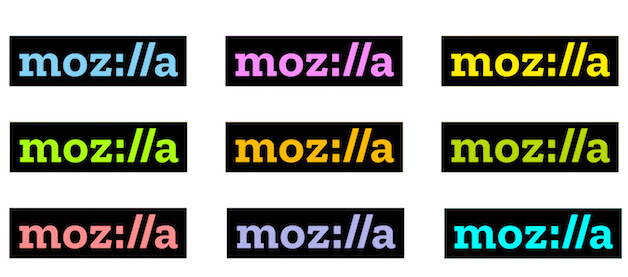
Mozilla criticizes Apple's iPhone privacy claims, launches online petition
Apple is one of the most privacy-focused tech companies. It has consistently protected its users, going so far as to defy the US Government by refusing to unlock an iPhone for the FBI. Conversely, Google makes a lot of its money from advertising and tracking users, while Microsoft has extreme telemetry in Windows 10.
And that's why it is so surprising that Mozilla -- another privacy-focused organization -- is criticizing Apple. You see, the Firefox-maker is calling out Apple for allowing advertisers to track iPhone users. Mozilla is going so far as to launch a petition, hoping to get Apple to change an important iPhone default setting.

Beta and nightly builds of Firefox now protect against fingerprinting and cryptomining
Mozilla has added new protective features to the nightly and beta versions of Firefox. Through a partnership with Disconnect, the browser is now able to block cryptocurrency mining and fingerprinting scripts.
The new features mean that users are protected against scripts that can be used to track them online, as well as those that use CPU cycles to mine for cryptocurrency. Mozilla says it is part of its mission to protect people from "threats and annoyances on the web".

Mozilla is launching curated Recommended Extensions program this summer
However much you love your chosen web browser, you have probably enhanced its capabilities through the use of add-ons. Finding decent, reliable add-ons can be tricky, and this is why Mozilla is launching the Recommended Extensions program.
This editor-curated program will surface the very best vetted extensions for Firefox, and it is due to roll out in stages later this summer.

Firefox Quantum 66 blocks audio autoplay, improves scrolling behavior and adds option to search all tabs
Mozilla has rolled out Firefox 66.0 for Windows, macOS and Linux, along with Firefox for Android 66.0.
The new release is light on new features, but heavy on delivering significant improvements across the browser. The big new addition is that websites will now automatically be blocked from playing sound -- however, the customizable feature won’t be immediately available to all users

New Windows Defender Application Guard add-ons for Chrome and Firefox open untrusted sites in Microsoft Edge
If you attempt to visit a bad site in Firefox or Chrome, your browser will often warn you, so you can decide whether or not to take the risk and continue to your destination.
Microsoft has joined the fight to prevent users unwittingly visiting bad sites by creating new extensions for Google and Mozilla’s browsers which automatically redirect users from untrusted sites to Windows Defender Application Guard for Microsoft Edge.

Open letter signed by Mozilla demands Facebook take 'real action' against disinformation
Mozilla has sent an open letter to Facebook calling on the social network to do more to fight disinformation and asking for increased transparency about political advertising.
The letter -- also signed by 32 other organizations including human rights and press freedom groups -- has been sent to Facebook in the run-up to the 2019 EU Parliamentary Elections. It comes after Mozilla's COO wrote to the European Commission to express her concerns about the lack of transparency at Facebook.

Mozilla COO contacts European Commission voicing concerns about Facebook's lack of ad transparency
Facebook has been no stranger to controversy and scandal over the years, but things have been particularly bad over the last twelve months. The latest troubles find Mozilla complaining to the European Commission about the social network's lack of transparency, particularly when it comes to political advertising.
Mozilla's Chief Operating Officer, Denelle Dixon, has penned a missive to Mariya Gabriel, the European Commissioner for Digital Economy and Society. She bemoans the fact that Facebook makes it impossible to conduct analysis of ads, and this in turn prevents Mozilla from offering full transparency to European citizens -- something it sees as important in light of the impending EU elections.

Mozilla has a new mobile web browsing experience for you to test: Reference Browser
Mozilla has launched a test version of a new mobile web browser -- sort of, anyway. Known as Reference Browser, Mozilla stresses that "this is NOT a new end product, it is a collection of parts".
Described as a "technology preview", Reference Browser sees the company seeking feedback about various components which may or may not be used together in the future. It is looking for Android users to provide "input, telemetry and feedback and bug reports" to shape the future of mobile web browsing.

Mozilla confirms Firefox Screenshots is here to stay, although one key feature will be lacking
It has been a busy time at Mozilla recently, with the relaunch of Mozilla Labs and the closure of the Firefox Test Program. The second piece of news -- coupled with the shelving of certain changes to Firefox -- led to speculation about the future of Firefox Screenshots, but Mozilla has come forward to try to calm these fears.
The company says that the screengrabbing tool -- which has become loved by many users since it launched nearly a year and half ago -- is here to stay. It's not all good news, however. One major feature is getting the axe: the ability to save screenshots to a Firefox-hosted server.

Mozilla closes experimental Firefox Test Pilot program
Just weeks after relaunching Mozilla Labs, the Firefox maker has announced that the browser's Test Pilot program is closing down. The move comes as Mozilla says it is "evolving Firefox's culture of experimentation".
The Test Pilot Program has been a beta testing ground for numerous Firefox features including Containers, Activity Stream and Firefox Monitor. But while this particular program is going away -- and with very little notice -- Mozilla says that experimentation will continue, and promises that experimental features will not be disabled for those who are currently using them.

Mozilla Labs is back!
The popularity of software betas and the Windows Insider program show that people are keen to get their hands on things earlier. There is a certain delight in tinkering with experimental tools, utilities and apps, and if this is the sort of thing that excites you, you'll be pleased to hear that Mozilla has brought Mozilla Labs back from the dead with a new site.
Not seen for a number of years, Mozilla Labs used to be home to experimental Firefox projects. Now, the relaunched version is home to more, including Project Things, Spoke, Hubs and more -- Firefox is no longer the sole focus.

Firefox Monitor Notifications will issue a warning if you visit a breached site using Mozilla's web browser
If a website suffers a security breach you may well decide that you want to give it a wide berth. The problem is that it is impossible for individuals to keep track of all of the breaches that take place, and Mozilla wants to help out.
After teaming up with Have I Been Pwned recently, Mozilla created Firefox Monitor to help inform people about breaches, and this is now expanding to more languages. On top of this, the organization has also now launched Firefox Monitor Notifications that will issue a warning if you visit a site that has been breached.

Mozilla partners with ProtonVPN to offer security-conscious Firefox users a VPN
Mozilla has announced a partnership with ProtonVPN as it explores new ways to keep people safe online.
Starting today, a select group of Firefox users in the US will see an ad for ProtonVPN encouraging them to take out a monthly subscription with the service. It's an experiment that is part of Mozilla's attempt to explore new revenue streams to help keep Firefox funded.

Bye bye, TLS 1.0 and 1.1: Apple, Microsoft, Mozilla and Google all wave adieu to old security protocol
As part of a coordinated movement between four of the biggest names in tech, the old TLS 1.0 and 1.1 security protocols are to be killed off in Safari, Edge, Internet Explorer, Firefox and Chrome in 2020.
Apple, Microsoft, Mozilla and Google have come together to purge the internet of these old and buggy protocols, noting that most people have now moved to TLS 1.2, if not TLS 1.3. Although 94 percent of sites already support version 1.2, a tampering off period over the next 18 months will give everyone a chance to catch up.

Firefox 64 will support Action Center notifications in Windows 10
Following the footsteps of Microsoft Edge and Chrome, Firefox is -- at long last -- going to offer support for the delivery of notifications through Windows 10's Action Center.
The move will please many Firefox users as this is a highly-requested feature, and it brings Mozilla's web browser in line with its rivals. While there is no release date for the finished version of Firefox 64, Action Center notification support has already made its way into the nightly builds.
